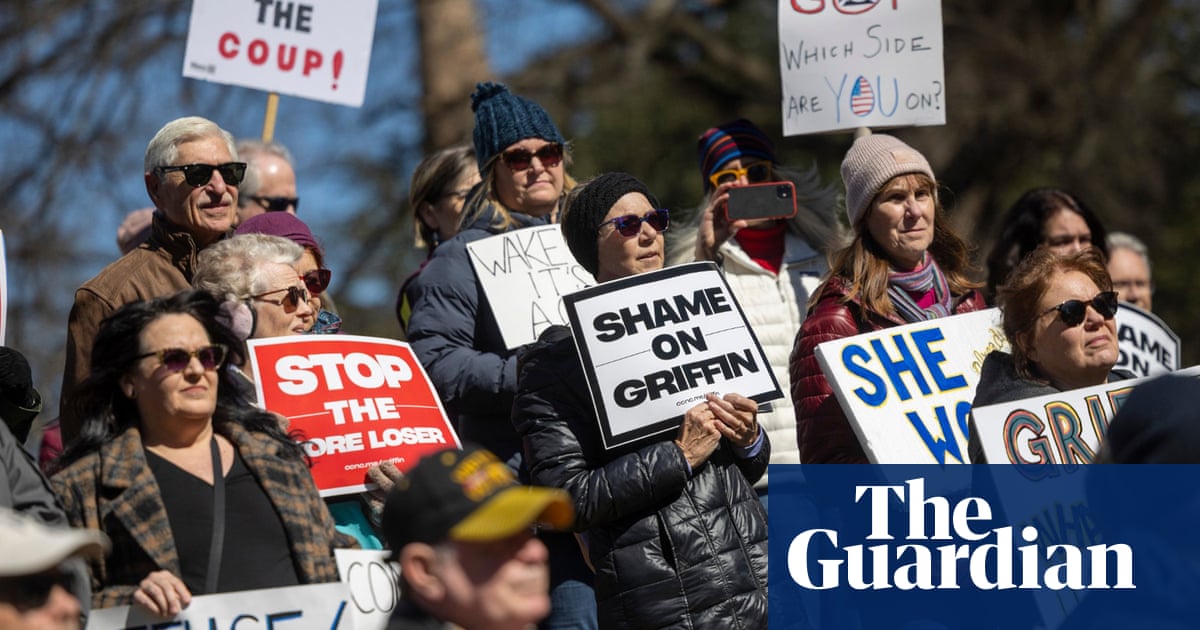Disputed ballots in the still unresolved 2024 race for aNorth Carolinasupreme court seat must remain in the final count, a federal judge ruled late on Monday, a decision that if upheld would result in an electoral victory for the Democratic incumbent, Allison Riggs.
US District Judge Richard Myers agreed with Riggs and others who argued it would be a violation of the US constitution to carry out recent decisions by state appeals courts that directed the removal of potentially thousands of voter ballots deemed ineligible. Myers wrote that votes could not be removed six months after election day without damaging due process and equal protection rights of the affected residents.
Myers also ordered the state board of elections to certify results that after two recounts showed Riggs the winner – by just 734 votes – over her Republican challenger, Jefferson Griffin. But the judge delayed his decisions for seven days in case Griffin wants to appeal the ruling to the fourth US circuit court of appeals.
The board “must not proceed with implementation of theNorth Carolinacourt of appeals and supreme court’s orders, and instead must certify the results of the election for [the seat] based on the tally at the completion of the canvassing period”, wrote Myers, who was nominated to the bench by President Donald Trump.
More than 5.5m ballots were cast in what has been the nation’s last undecided race from November’s general election. Griffin, himself a state court of appeals judge, filed formal protests after the election in hopes that removing ballots he said were unlawfully cast would flip the outcome to him.
Griffin’s legal team was reviewing Myers’s order on Monday night and evaluating the next steps, a Griffin campaign spokesperson, Paul Shumaker, wrote in an email.
Riggs was more assured in her statement: “Today, we won. I‘m proud to continue upholding the constitution and the rule of law as North Carolina’s supreme court justice.”
Griffin wanted Myers to leave undisturbed the state courts’ decisions, which also directed that most of the voters with otherwise ineligible ballots get 30 days to provide identifying information for their race choices to remain in the tally.
Riggs, the state Democratic party and some affected voters said Griffin was trying to change the 2024 election outcome after the fact by removing ballots cast by voters who complied with voting rules as they were written last fall.
Myers wrote that Griffin’s formal protests after the election, which were rejected by the state board of elections, constituted efforts to make retroactive changes to the voting laws that would arbitrarily disenfranchise only the voters who were targeted by Griffin. Griffin’s challenges over voters not providing photo identification only covered at most six Democratic-leaning counties in the state.
“You establish the rules before the game. You don’t change them after the game is done,” Myers wrote in a 68-page order.
“Permitting parties to ‘upend the set rules’ of an election after the election has taken place can only produce ‘confusion and turmoil’” that “‘threatens to undermine public confidence in the federal courts, state agencies, and the elections themselves,’” he added while citing other cases.
Democrats and voting rights groups raised alarm about Griffin’s efforts. They called it an attack on democracy that would serve as a roadmap for the GOP to reverse election results in other states. The state Republican party said Griffin was seeking to ensure that only legal votes are counted.
One category of ballots that state appeals courts declared violated the state constitution were cast by overseas voters who have never lived in the US but whose parents were declared North Carolina residents. A state law passed in 2011 had authorized these persons to vote in state elections.
The other category covered military or overseas voters who did not provide copies of photo identification or an ID exception form with their absentee ballots. A state rule exempted them from the requirement. The appeals courts had permitted a “cure” process for the voters who did not provide IDs so their ballots could still count in the race.
While North Carolina can certainly establish rules for future state elections, Myers wrote, they cannot be applied after the fact to only a select group of voters.
Griffin filed formal protests that appeared to cover more than 65,000 ballots. Ensuing state court rulings whittled down the total to as few as 1,675 ballots or perhaps as many as 7,000, according to court filings.
Riggs is one of only two Democrats on the seven-member state supreme court, and winning an eight-year term would improve the party’s efforts to retake a majority on the court later in the decade. Griffin and Riggs have not participated in deliberations in their respective courts about their election.
